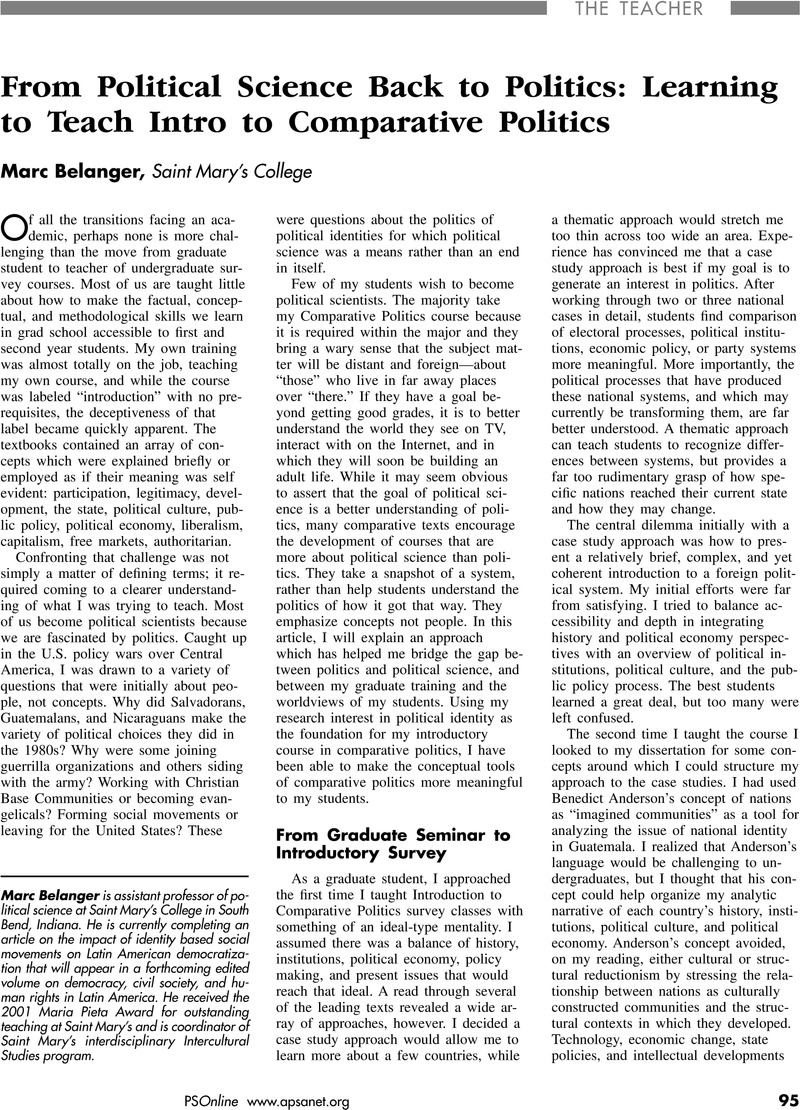No CrossRef data available.
Article contents
From Political Science Back to Politics: Learning to Teach Intro to Comparative Politics
Published online by Cambridge University Press: 26 February 2004
Abstract
An abstract is not available for this content so a preview has been provided. Please use the Get access link above for information on how to access this content.

- Type
- The Teacher
- Information
- Copyright
- © 2004 by the American Political Science Association
References
Ignatieff Michael.
1994
Blood and Belonging: Journeys in the New Nationalism.
New York:
Farrar, Straus and Giroux.Google Scholar
Kesselman Mark,
Joel Krieger, and
William A. Joseph, eds.
2000
Introduction to Comparative Politics, Second Edition.
Boston:
Houghton Miflin.Google Scholar
Sontag Deborah.
1998
“A Mexican Town That Transcends All Borders.”
New York Times,
July 21.Google Scholar
Sontag Deborah, and
Celia Dugger.
1998
“The New Immigrant Tide: A Shuttle Between Worlds.”
New York Times,
July 19.Google Scholar
Weber Max.
“Science as a Vocation.”
InFrom Max Weber, translated and edited by
H. H. Gerth and
C. Wright Mills.
New York:
Oxford University Press,
1990.Google Scholar




